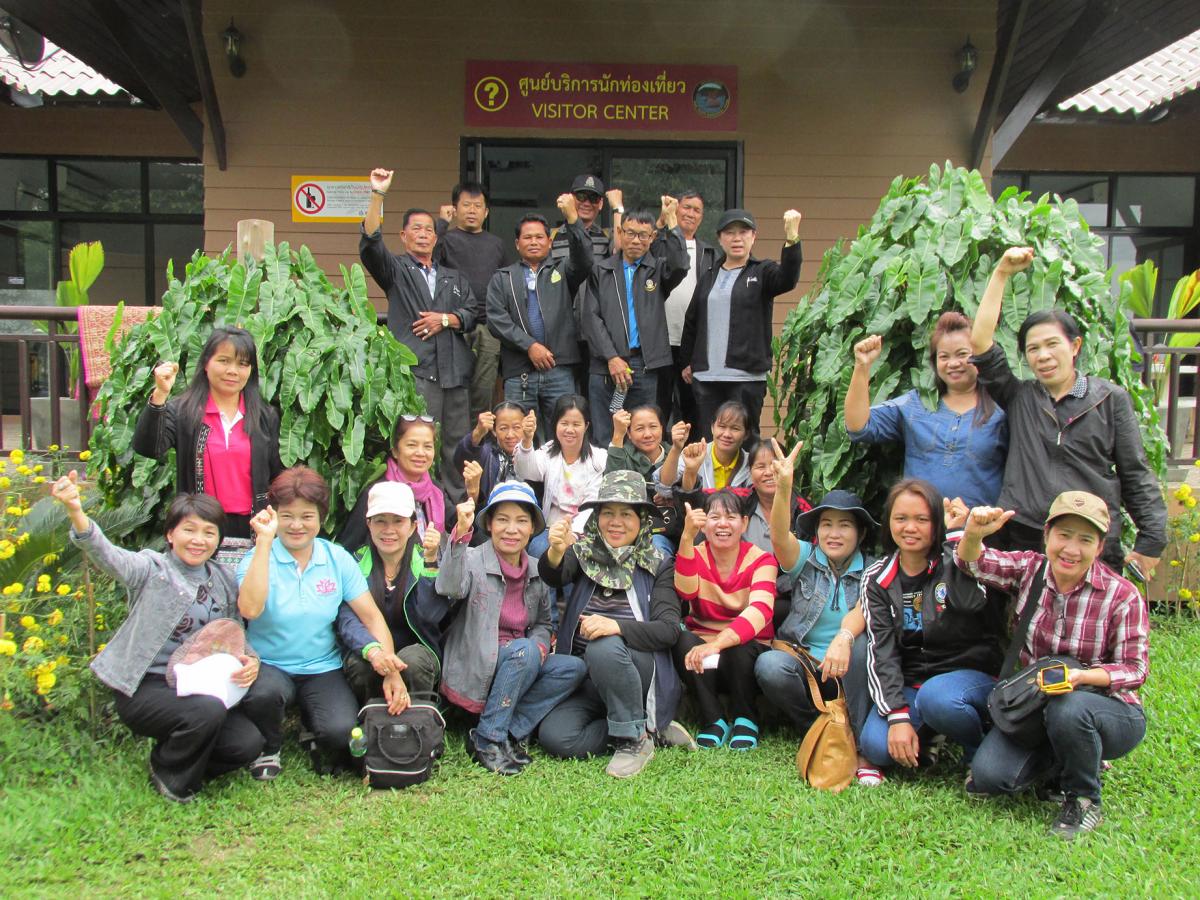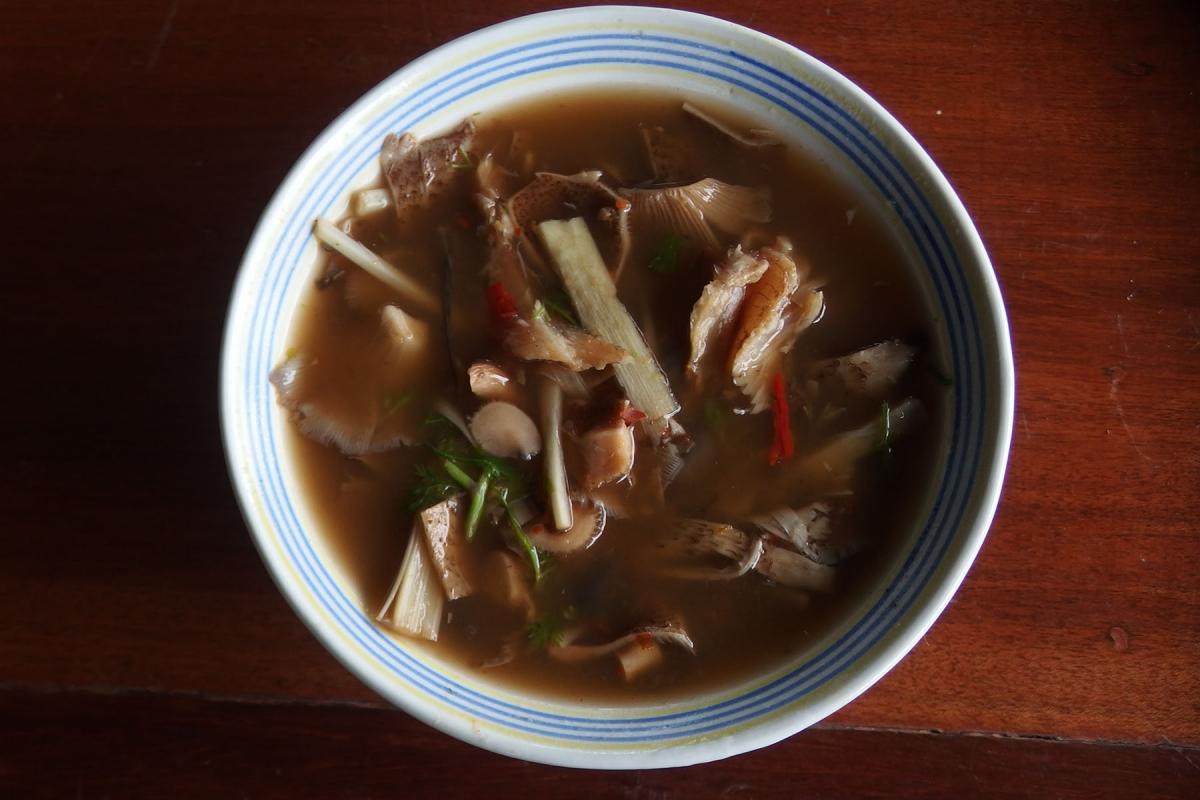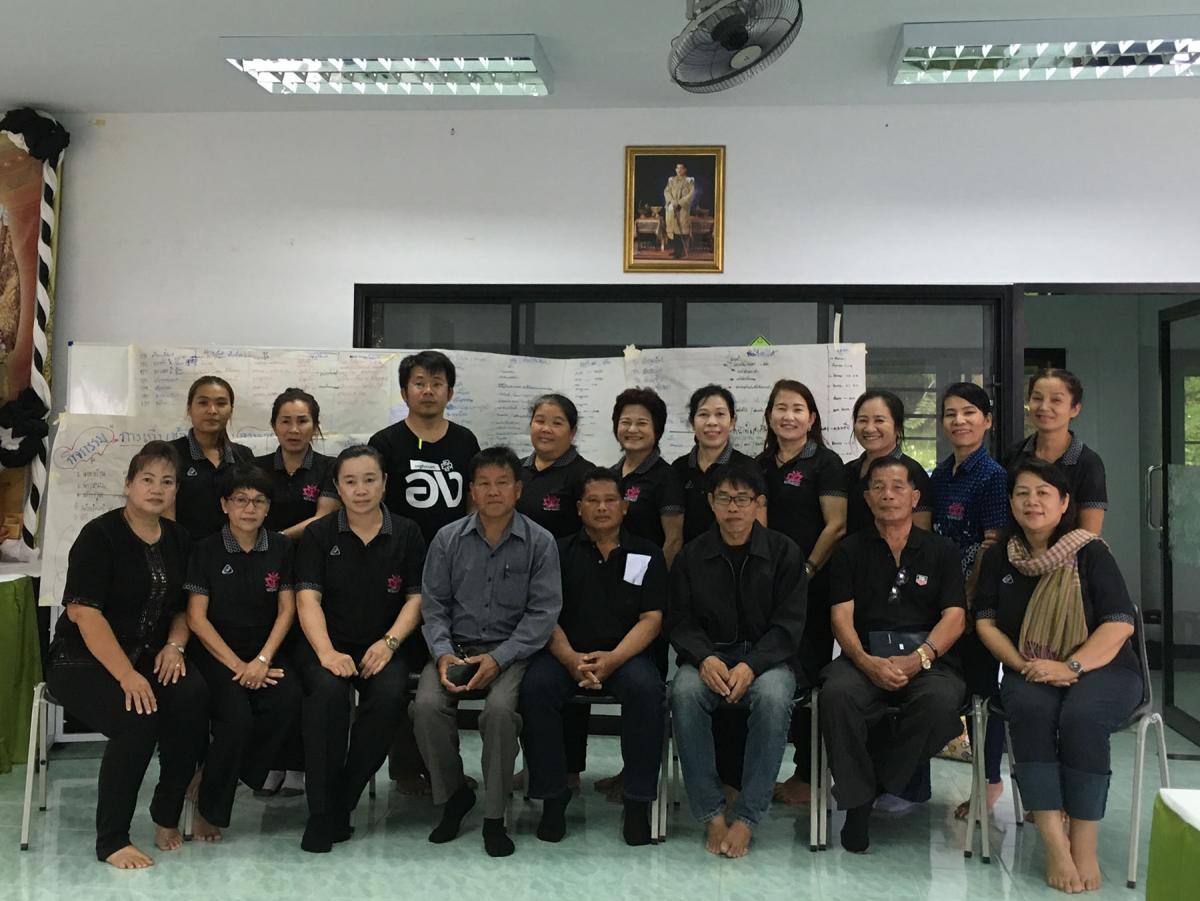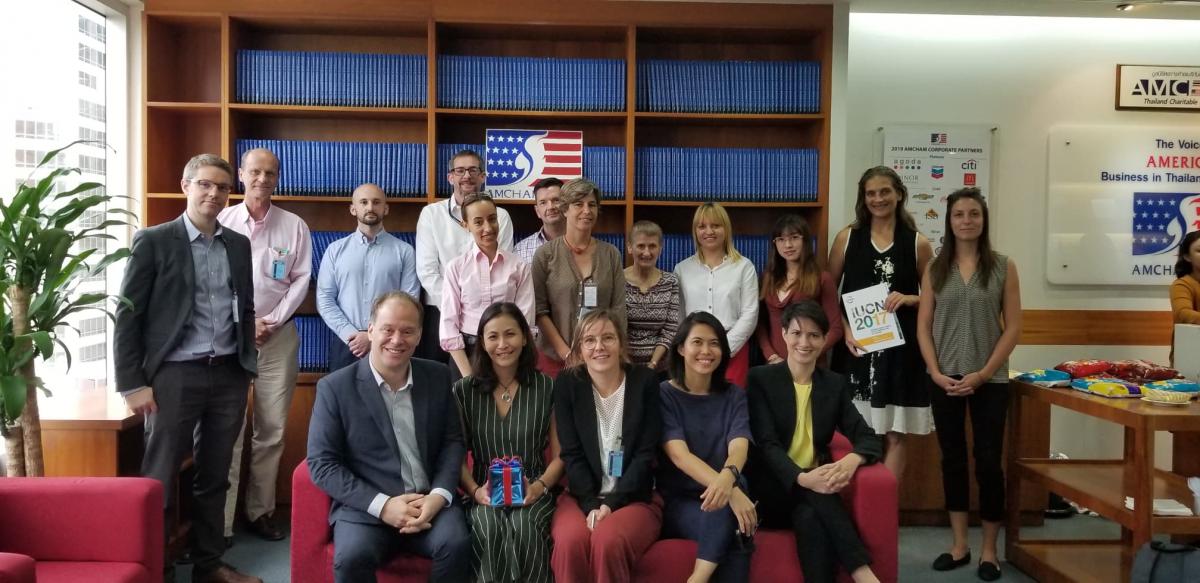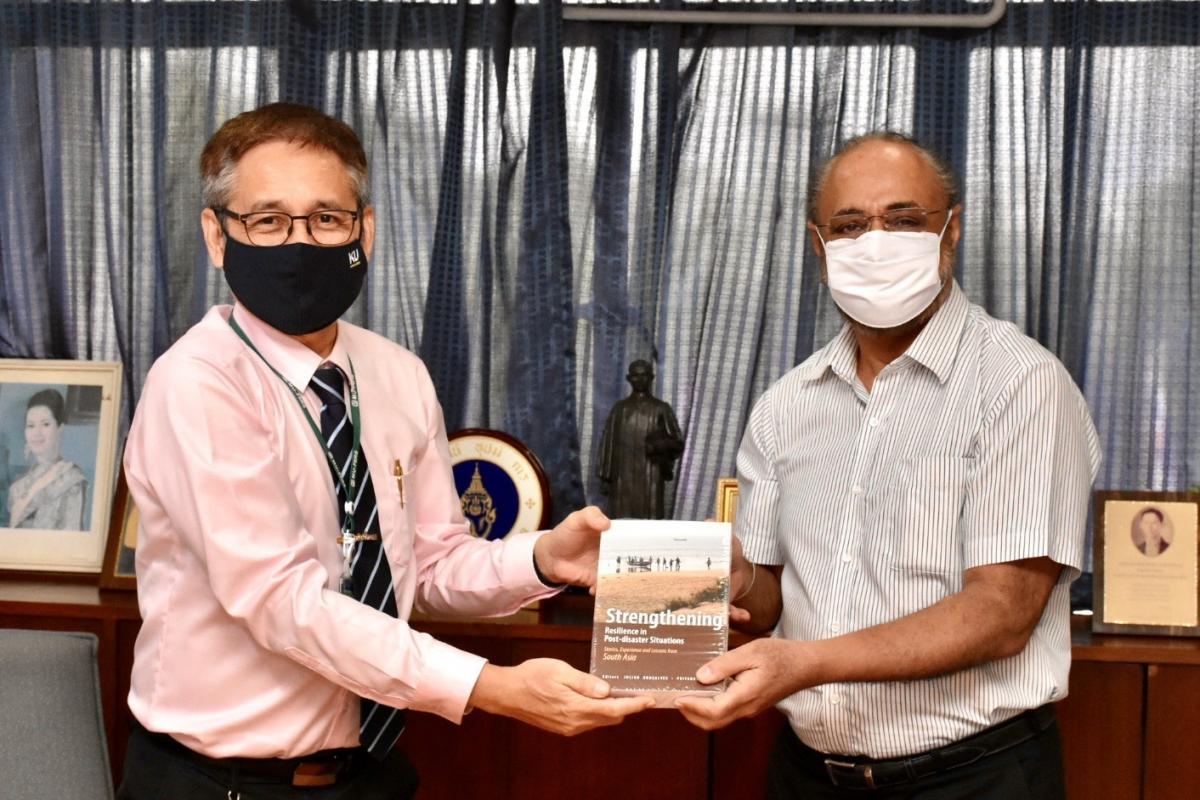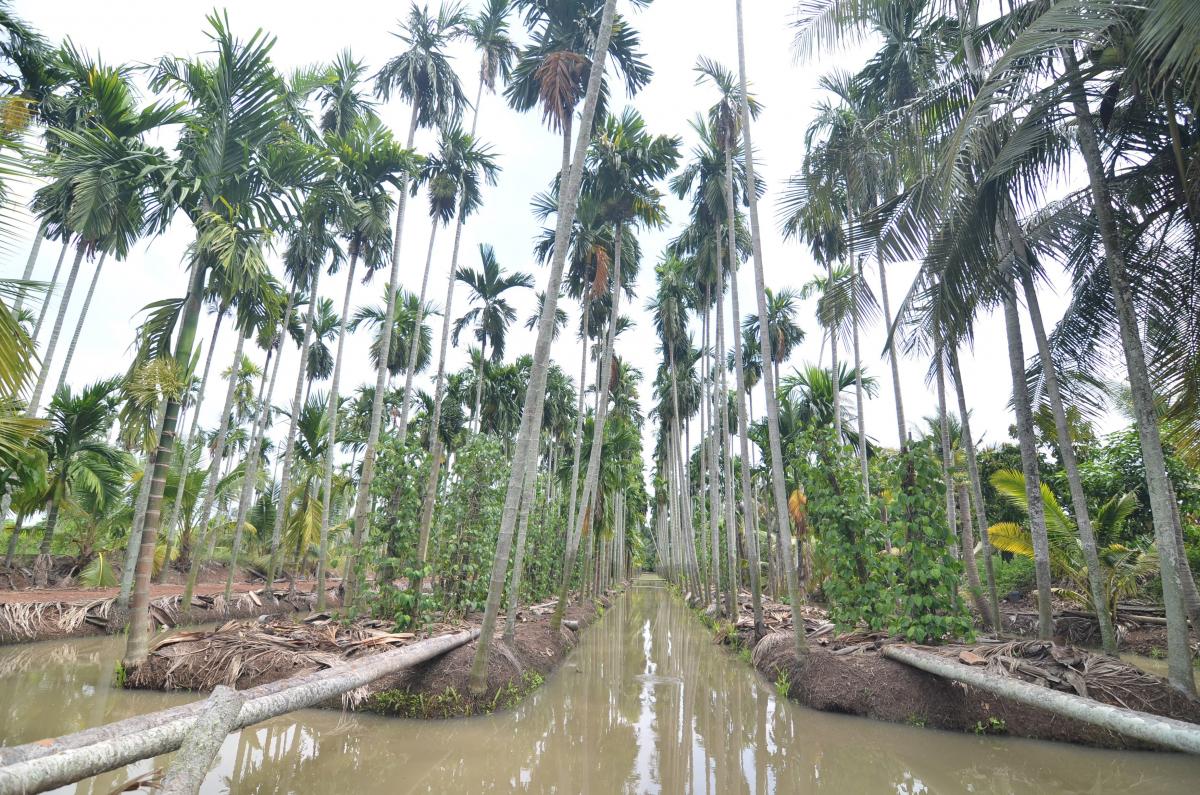Sharing local knowledge and building relationships: the key to action protecting biodiversity in Northern Thailand
From October 2017 to March 2018, the Mekong Community Institute Association, a local women’s group based in northern Thailand, conducted a community-based study which builds upon local knowledge of a community that has been historically dependent on the Mae Puem forest for their survival.
The “Taibaan Research”, which is the name of the study, was conducted as part of the “Strengthening a Women’s Network for Riverine Biodiversity Conservation in the Ing River Basin (Phase 2)” project, supported by CEPF, for which IUCN is an implementing partner in the Indo-Burma region.
Various stakeholders, including the village headman, the sub-district headman, local officers from Mae Puem National Park, villagers from Ban Lao sub-district, and representatives from community women’s groups, volunteer groups, NGOs, and the academic sector, participated in the study.
The research revealed that three shrines (Chao Por Doiduay, Chao Por Phahin and Pee Khunnam Mae Puem), located in the Mae Puem forest, have long been valued by villagers, who have a spiritual connection with the forest.
The research also revealed that the Mae Ying community has an important role to play in enhancing and accumulating knowledge about the forest amongst their network and villagers, and even outside the Mae Ying community. By sharing knowledge, relationships between communities can also be enhanced. The well-established relationship between the national park staff and the forest community has contributed to sustainable forest conservation and conflict reduction.
The Mae Ying network also has a comprehensive knowledge about forest plants, which can contribute to ensuring a constant supply of food in the region. The research found that the Mae Puem Forest area has 113 species of food plants – 114 of which are cooking plants and 17 of which are fruit plants. These plants are used in local culinary dishes.
Wild vegetables are not only important to physical health, but also to mental health, a household’s financial status, and the economy of the community. The plants provide fresh and nutritious food and are also used in local medicine. In addition, forest harvests can reduce food costs and reduce the amount of pharmaceutical drugs being purchased. They can also be sold for profit.
The “Strengthening Mae Ying Network for Biological Diversity Conservation in Ing Watershed” project, has proven that sharing local knowledge is important in enhancing conservation efforts and in reducing conflict. The project has also proven that the Mae Ying network can be a leader and model for developing similar information-sharing networks in other communities.
Founded in 2000, the Critical Ecosystem Partnership Fund is a global leader in enabling civil society to participate in and benefit from conserving some of the world’s most critical ecosystems by providing grants for organisations to help protect biodiversity hotspots, Earth’s most biologically rich yet threatened areas. CEPF is a joint initiative of l'Agence Française de Développement, Conservation International (IUCN Member), the European Union, the Global Environment Facility, and the Government of Japan (IUCN State Member).
IUCN is leading the second phase of CEPF's work in the Indo-Burma hotspot, working together with the Myanmar Environment Rehabilitation-conservation Network (MERN) and Kadoorie Farm and Botanic Garden (KFBG) to form the CEPF Regional Implementation Team (RIT).

